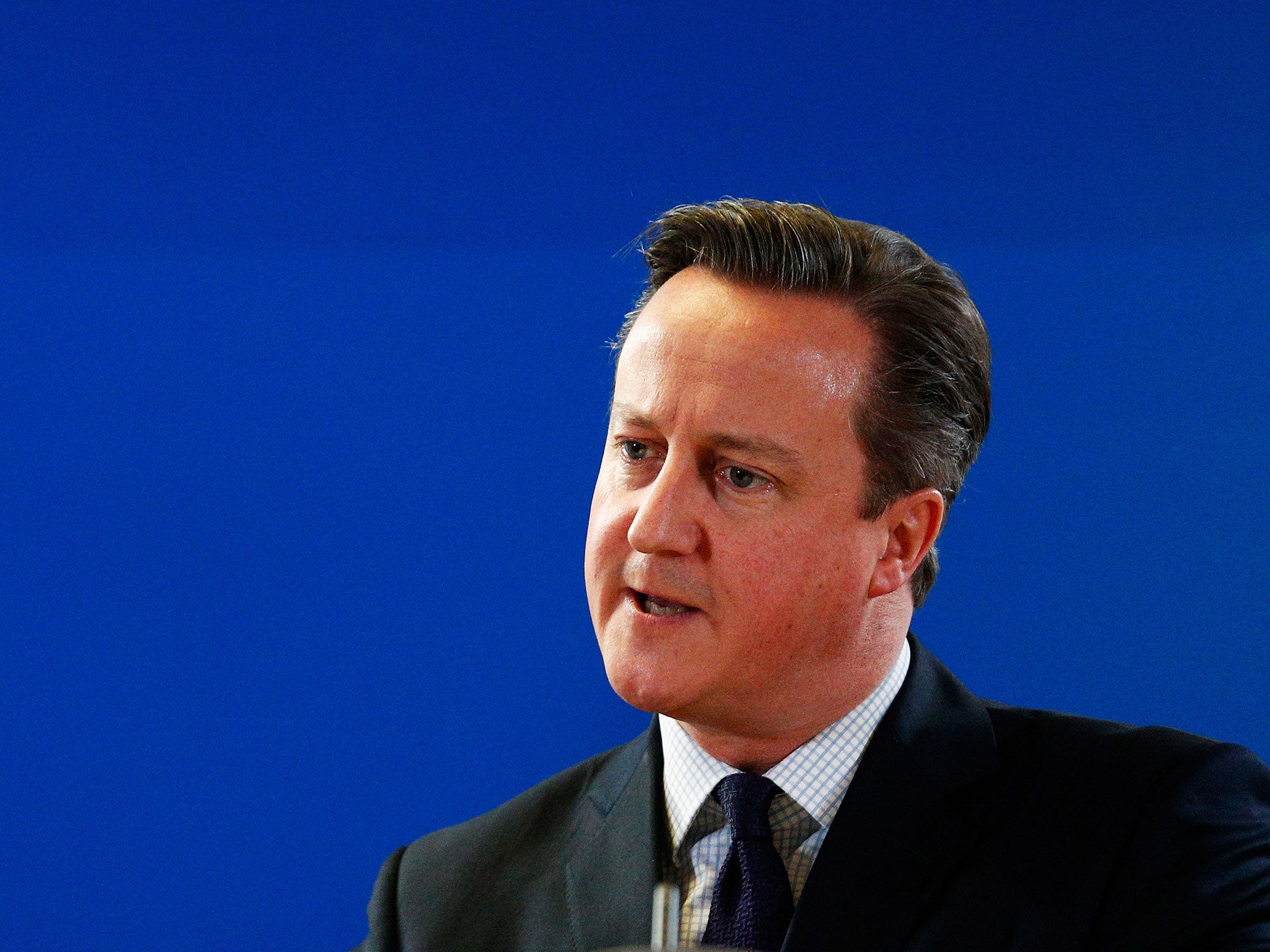EU referendum: In allowing ministers a free vote , David Cameron is guilty of shoddy statesmanship
On an issue as important as this, the PM’s priority should not be the health of his party, but the interests of the country

David Cameron’s decision to allow his ministers a free vote in the forthcoming EU referendum is good party management, but bad statesmanship. The Conservative Party has been split over Europe for as long as anyone can remember. It was this issue that set off the sequence of events that brought down Margaret Thatcher. When John Major made his memorable comment about “bastards” in his cabinet, he was referring to those who had opposed him over Europe. In leadership contests during its years in opposition, the Conservative Party repeatedly rejected Ken Clarke, who would have been a more popular leader with the public than either William Hague or Iain Duncan Smith, because he was too pro-EU for Conservative tastes.
And having committed himself to holding a referendum, Mr Cameron could not form a cabinet which he was able to rely on to unite behind him in recommending continued EU membership – no matter what he brings back from his negotiations with other member states. If he were to insist on ordering ministers to toe the line – as he said he would last year – there would be resignations. We do not know how many, but it would take only a few to open up a fault line through every level of the party.
In the circumstances, a free vote was Mr Cameron’s best means of keeping his party more or less united, but it is no way to run a country. The Prime Minister says that he believes the UK’s future should be in a “reformed” EU, but he is in danger of being the politician who presided over an irreversible rift between the UK and the European mainland, possibly followed by the break-up of the UK. He is consequently placing a very large burden on the “reforms” he says he is negotiating with EU member states, which have all the appearance of being no more than symbolic gestures contrived for the benefit of public opinion in the UK.
Mr Cameron has weakened his own position by letting it be known that he will leave Downing Street soon after the referendum, whatever the outcome. This means that the thoughts of the more ambitious cabinet members will be on the leadership contest that will follow. Even if the country votes to stay in the EU, as hopefully it will, a majority of paid-up Conservative Party members may vote against, making it likely that the next Conservative leader will be someone from that side of the argument. That thought might be enough to tempt Theresa May or Boris Johnson to add their considerable weight to the Out campaign. And in the middle ranks, ministers hoping for preferment in the post-Cameron government will not see any reason to worry about offending Mr Cameron, but will have a very good reason to want to be seen standing alongside his likely successor, perhaps drawing yet more experienced recruits to the Out campaign.
What leading Conservatives do during the referendum would matter less if there were a credible opposition leader to give political weight to an In campaign. In Scotland there is, but Scotland contains less than a tenth of the UK population. South of the border, there is only the shattered remains of the Liberal Democrat party, and a Labour Party whose leader, Jeremy Corbyn, is from the old anti-EU hard left.
On an issue as important as this, the Prime Minister’s first priority should not be the health of his own party, but the interests of the country. Unfortunately, Mr Cameron has decided to gamble on the future of the UK just to keep a veneer of unity among the Conservatives.


Join our commenting forum
Join thought-provoking conversations, follow other Independent readers and see their replies